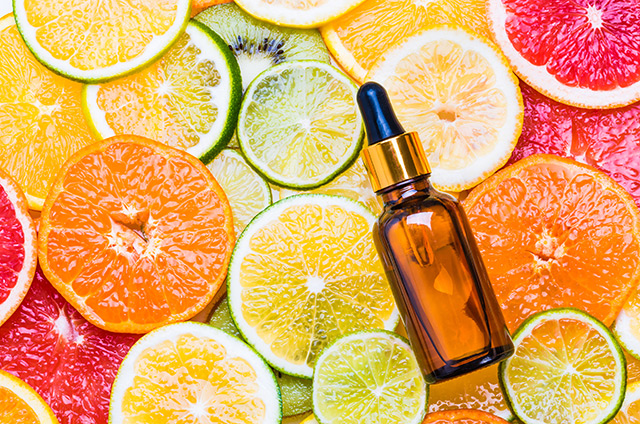Essential oil of pomelo, a citrus fruit similar to grapefruit, is easily altered by heat and oxygen
08/21/2019 / By Melissa Smith

Essential oils are used for aromatherapy, a form of healing. These oils must be stored properly to maximize their benefits. In a study published in the Journal of Essential Oil Research, researchers found that heat and oxygen could affect the aromas and volatile compounds of pomelo (Citrus maxima) essential oil.
Also known as Chinese grapefruit, pomelo is an exotic large citrus fruit that is native to Southeast Asian countries but is now grown in most parts of the world. This fruit is similar to grapefruit but slightly larger. Its flesh can be white, pink, yellow, or red, and its skin is either green or yellow. The fruit is sweet and tart in taste. (Related: Pomelo: 7 Reasons to Eat This Fabulous Fruit.)
The researchers, who were from Jimei University in China, looked at how heat and oxygen affect the aromas and volatile compounds of pomelo essential oil. To do this, they conducted various tests that evaluated the characteristics and chemical composition of the oil. In addition, they compared pomelo essential oil with fresh, nitrogen-protected, heat-exposed, and oxygen-exposed pomelo essential oils.
When the researchers exposed pomelo essential oil to both air and heat, it displayed significant changes in both aroma and volatile composition. Unlike the other pomelo essential oils, the pomelo essential oil exposed to both air and heat exhibited strong sweet and floral odors, which were attributed to its high content of limonene oxides. It also showed a strong minty aroma due to the increase of the terpenoid L-carvone caused by heat and oxygen exposure.
These results indicated that limonene oxides and L-carvone could greatly affect the scent of pomelo essential oil after being exposed to both air and heat. The researchers concluded that their findings provide valuable information for the production and storage of aromatic products of pomelo essential oil.
Storing essential oils
Essential oils, including pomelo essential oil, can last a long time when stored correctly. Generally, they can last for at least a year, and some oils may even last for more. Oxidation can speed up the degradation of oils.
Most essential oil constituents oxidize, and heat promotes oxidation. Although it is a slow process, oxidation will be difficult to stop once it started. This will degrade the oil and increase evaporation. You can tell an essential oil has oxidized if it does not smell as fresh as it did or the bottle became cloudy.
For example, citrus fruit oils, like pomelo, are high in limonene, which is especially prone to oxidation. As it oxidizes, the percentage of pure limonene in your oil declines as it is being oxidized into other substances. As a result, the therapeutic potential of the essential oil also declines. Additionally, the chemicals formed during oxidation are not pleasant and therapeutic. They may also increase the risk of skin sensitization from the essential oil.
Tips for storing essential oils
- Keep your essential oils in a cool, dry place to avoid heat and light.
- Properly close the lids of your oil bottles to avoid oxidation and moisture.
- Transfer oils from a larger bottle that is almost empty to a smaller one.
- Choose essential oils that are in amber or cobalt glass bottles than those in clear glass bottles.
- Do not store pure essential oils in plastic as they are corrosive.
Read more about the proper storage of essential oils, such as pomelo essential oil, at EssentialOils.news.
Sources include:
Tagged Under: alternative medicine, aroma, aromatherapy, carvone, Citrus maxima, essential oils, healing, heat, herbal medicine, limonene, natural medicine, oxygen, pomelo, pomelo essential oil, remedies, research, volatile components
RECENT NEWS & ARTICLES
COPYRIGHT © 2017 RESEARCH NEWS


















